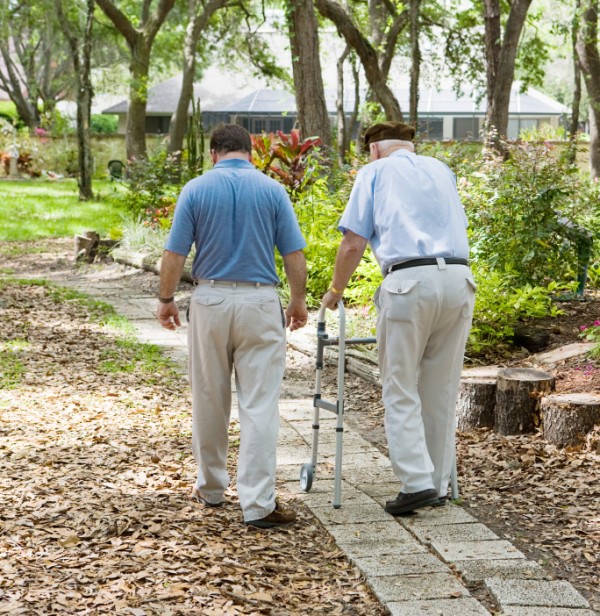
Nursing home residents have been without visitors and in some cases access to fresh air for months. Photo: File.
This pandemic has seen individuals and organisations reorganise day-to-day activities in a different way. Some have risen to the challenge – think cafes that have turned into takeaway venues overnight – while others have taken the opportunity to resort to the bad old days.
While the pandemic has thrown a curveball at aged care providers, some have not risen to the challenge, introducing shocking arrangements for our most vulnerable – the elderly.
Residents of many aged care facilities are essentially in solitary confinement because of the decisions being made by providers on behalf of residents. I have no doubt that the providers think they have the best interests of their residents at heart, but I believe the arrangements that have been made are for the benefit of the providers rather than the residents.
The Prime Minister instructed aged care facilities to cease the curtailment of visitors to residents of nursing homes during a press conference on 24 April 2020. Up until then, national guidelines announced by the PM in March 2020 advised that it was acceptable for residents to have two visitors a day in their rooms. Facilities could apply for exemptions.
That same day, an aged care facility in the ACT issued a note to all residents and families advising that it would not be opening up for visitors at that time. No visitors had been allowed into the nursing home for more than five weeks.
The aged care industry released guidelines on 12 May 2020. Unfortunately, some homes continue to make visiting arrangements a nightmare.
The facility mentioned above now allows residents to have just one visitor per day for half an hour – after more than seven weeks of no visitors. The visit must be booked.
My friend who lives in that facility was able to have just one half-hour visit with one person this week because all the available booking times were taken by other residents. No visits for my friend over the weekend and just one during the week. For half an hour.
That same facility has not taken its residents outside since mid-March because, according to one staff member, they do not have enough staff to supervise the residents. No sun on their faces, no sun on their backs, no vitamin D.
Certainly, there are ways to redress the removal of human rights, such as complaining to the Aged Care Quality and Safety Commission. However, my friend’s family does not want to jeopardise their loved one’s care through repercussions. While the Commission takes a dim view of repercussions, nevertheless they happen.
I have had plenty of people tell me that these restrictions are in place for the good of residents. I wonder at this – the aged care facility has no COVID-19, and it has no other outbreaks of infectious conditions. It’s been shown that with good hygiene practices, there is no reason not to follow the Commonwealth’s directions.
Hospitals are able to manage visitors: temperature checks and hand hygiene at the front doors, limiting the number of visits to each patient and length of visits. Those arrangements do not exclude access to visits. They merely manage them.
I despair of the fact that some aged care providers are basically getting away with reverting to the dim black days of history in the way elderly residents are managed – their human rights are significantly diminished. Yet, they continue to act with impunity, sometimes across nationwide chains of facilities.
This particular aged care facility is part of a national chain and these arrangements apply to other facilities across the chain. This is happening while the Royal Commission into Aged Care Quality and Safety is underway.
It is happening despite the Commonwealth’s instructions. It is happening despite the existence of an aged care charter of human rights. It is happening despite the code of conduct agreed by aged care providers.
Mental health experts will no doubt have a significant contribution to make in this space, but it will be too late for the current residents who may just give up over this appalling ‘care’.
I am sure we should not be waiting for individual complaints: aged care is clearly a Commonwealth responsibility and actions should be taken immediately to address this abuse of human rights.
Anne Cahill Lambert AM has worked in the health system for more than 40 years. She was the former chair of the ACT Remuneration Tribunal and a member of the National Health and Medical Research Council. She has a particular focus on ensuring that the voice of consumers is heard.
Original Article published by Anne Cahill Lambert on The RiotACT.









